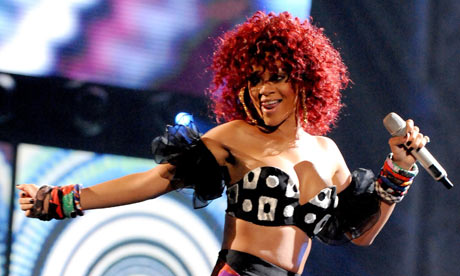
Banned By The BBC
News that Rihanna’s latest single has been severely edited for radio did not go down well with her fans – or with the singer herself.
S&M was thought too raunchy for the radio and so an edited version has been played. Renamed as Come On the track had all references to “sex,” “chains” and “whips” edited out.
But on this occasion it seems that the censored version was the work of Rihanna’s record company, Island Def Jam, who had supplied it to radio stations without her knowledge.
So this time we cannot blame the BBC for being overly prudish. But there have been several occasions in the past where that has been the case. Some banned singles have featured explicit language, but others shows why our national broadcaster has been nicknamed Auntie Beeb.
Perhaps the most famous bans were those applied to Frankie Goes To Hollywood and the Sex Pistols.
Frankie’s Relax, the 1984 debut single, initially slipped under the radar and was even played on Top Of The Pops. But its sexual innuendo was later discovered and the single was banned. This perhaps helped it to reach the number one slot. And after much public debate the song was later un-banned.
God Save The Queen was always going to be a controversial release because of its politics. An anti-royalist song released during celebrations of the Queen’s silver jubilee was never going to go down well with the establishment and so it was banned by the BBC.
But this merely helped sales and the single is officially recorded as reaching number 2 in the charts. There has long been suspicion that it actually reached the top spot however, yet was simply not allowed to become number one.
There have been many other songs that have been banned, some only on a temporary basis.
The Pogue’s classic Fairytale of New York was on the list for a while because of bad language, while a whole host of songs were not played during the Gulf War – including The Cure’s Killing An Arab and, less obviously, Rod Stewart’s Sailing.
The BBC does have a duty to act as a responsible broadcaster. But it has to balance this against artists’ right to free speech.
Perhaps record companies are now taking the decisions away from broadcasters by providing radio friendly edits – although artists like Rihanna clearly don’t approve.
